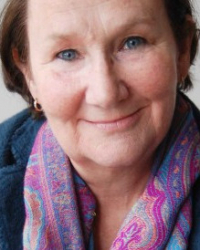The search for the ideal
Most of the fairy tales we have read to us as children involve a happy ending with the woman finally getting her man after a time spent going through an ordeal. Cinderella had to put up with a horrible family set up involving another cultural cliché, namely, the wicked stepmother before she met her prince at a ball from which she was barred. Snow White had to spend rather a long time living with some dodgy looking men and then went into a strange coma like trance whereupon she was rescued by a prince. She also had to put up with a wicked step mother who tried to poison her.
Fairy tales are full of dangerous people, monsters, cruelty, jealousy and we can see in them a vehicle for our own primitive emotions. Hollywood, likewise, gives us fairy tales which involve a similar narrative arc – boy meets girl, they fall in love, something goes amiss, they part, they go through an ordeal involving pain and learn something about themselves along the way. Then at the end they find each other again – wiser and more mature.
The whole idea of the happy ending pervades our lives today. Lots of us live our lives searching for the ideal man or woman who will so occupy our thoughts and feelings that they appear to be the mirror image of ourselves. We want them to understand us magically; we don’t want to have to tell them. We want to fuse with them and go back into the womb so that there is no difference between us. We find it hard to tolerate or bear the fact that other people are not like we are. We want to find our other half. Idealisation is a goal we all aim for but the ideal person does not exist except in our head which is why we come a cropper. We have to accept that the object of our love is a flawed human being like we are. If we put up with too much from them, hoping that they will change then we have to look at why and that often involves too much pain. People stay in an unhealthy relationship because they still have an ideal that they cling to, a happy ever after that is their goal.
We need experiences in life that seem like setbacks and shadows. These can be difficult times. We need to get lost in the dark forest to reclaim something of ourselves otherwise we continue to make the same mistakes over and over again as we have not worked through what has gone wrong. This is why children like to have stories read to them over and over again because, amongst other things, it helps them to see and understand parts of the story they had not understood before. Our story is the same. In the therapy sessions often the same details are mulled over and over; this is because it gives us an opportunity to find something new, that we hadn’t noticed before.
The happy ever after does not exist. We are all under put under too much pressure to be happy. Sadness can teach us to find a way forward by allowing us time to grieve. Grief is important, like forgiveness it allows us to separate ourselves from the object of our grief. Letting go and working through pain is hard but it is essential if we are not going to repeat the same mistake over and over again.

Find the right counsellor or therapist for you
All therapists are verified professionals
